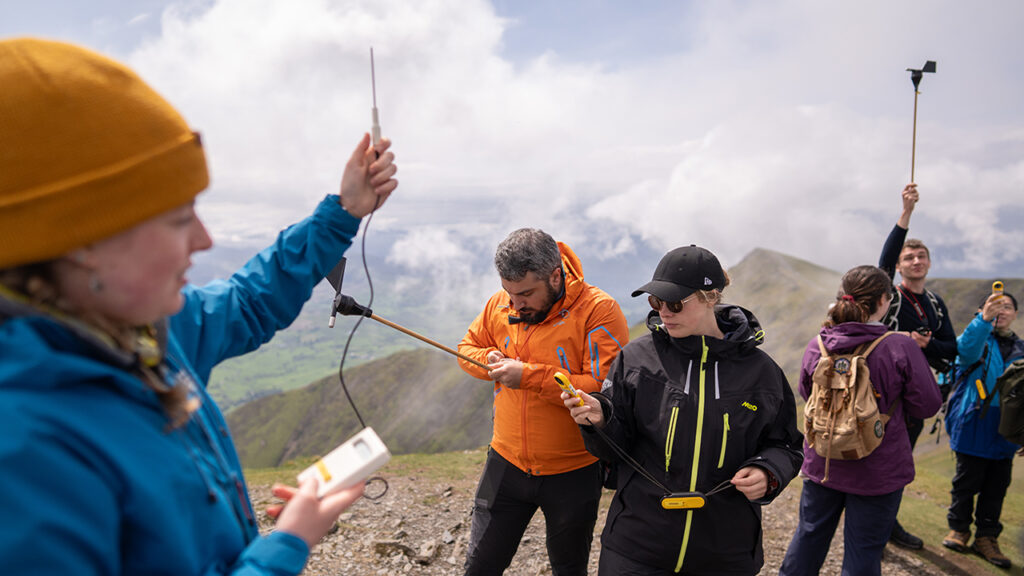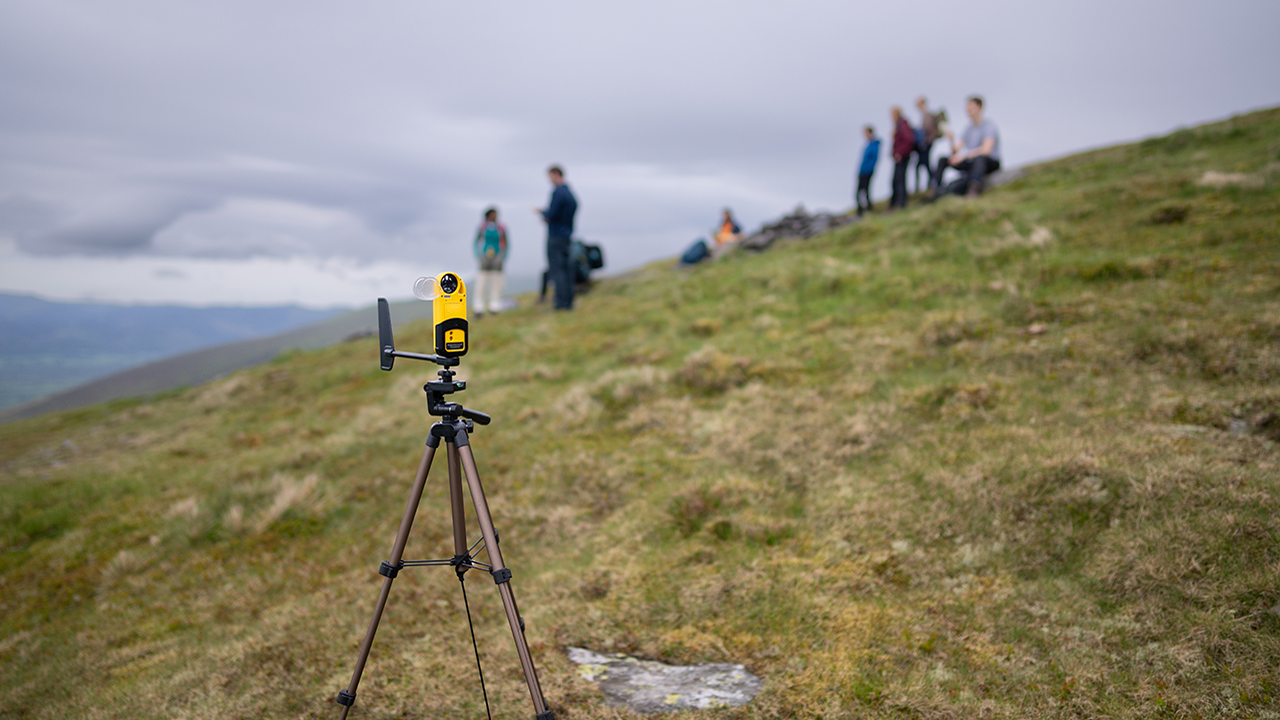
Five ways to foster inclusive fieldwork
Fieldwork is a crucial part of scientific research, providing opportunities for data collection, collaboration, and hands-on learning. However, ensuring that fieldwork is accessible, safe, and inclusive for all participants is essential. Whether in remote wilderness areas, urban environments, or specialised laboratory settings, fieldwork should consider the diverse needs of researchers and support staff.
In this article we outline five key strategies for fostering inclusive fieldwork, drawing from the principles of the Inclusive Fieldwork Guide developed by colleagues across the National Centre for Atmospheric Science and with input from environmental scientists across the UK.
Inclusive planning and preparation
Effective planning is the foundation of inclusive fieldwork. Before embarking on any field expedition, fieldwork leaders should anticipate and address the diverse needs of participants, considering factors such as accessibility, physical and mental health, gender identity, and personal safety. Early consultation with participants allows for adjustments that make fieldwork more accessible, such as flexible work schedules, inclusive rest periods, and accommodations for various dietary, religious, or cultural needs.
For new or unfamiliar locations, conducting a site visit is a valuable practice to assess potential challenges. This includes checking for accessible facilities, gender-neutral restrooms, and ensuring suitable accommodation.
By involving participants in the planning process and clearly communicating expectations in advance, leaders can help prevent misunderstandings and foster a positive and inclusive fieldwork experience for all.
Professor Jacqui Hamilton – Science Director, National Centre for Atmospheric Science
Open and ongoing consultation
Ongoing communication is vital to ensure participants feel supported and their needs are met throughout the fieldwork. Leaders should take time to consult with both experienced fieldworkers and those new to the process, addressing individual concerns and providing clear information about the environment and tasks ahead – this could even include offering remote or virtual ways to participate. This is particularly important for participants with specific health concerns or disabilities, as well as those who may face cultural or identity-related risks during international fieldwork.
Lisa Banton, Head of People, EDI & Workforce Development at the National Centre for Atmospheric Science outlines how inclusive consultation also involves creating a safe space for participants to share concerns without fear of negative consequences:
“Leaders must ensure all discussions are handled with respect and confidentiality, making every effort to accommodate reasonable adjustments. Transparent communication and flexibility build trust and contribute to a more inclusive and collaborative fieldwork environment.”
Comprehensive risk assessment
“Incorporating equality, diversity, and inclusion into fieldwork risk assessments is essential to ensure the safety and well-being of all participants,” explains Lisa.
Beyond standard health and safety protocols, an inclusive risk assessment should consider issues such as local cultural attitudes towards gender, race, sexual orientation, and religion. For example, in some regions, LGBTQ+ researchers may face legal or cultural barriers, while others may have specific needs related to disability or health.
Fieldwork leaders should also assess the physical demands of the site, ensuring accommodations where possible are available for those who may require them, such as wheelchair access, mental health support, or flexibility in work schedules. By involving participants in the risk assessment process and tailoring plans to their specific needs, leaders can mitigate potential challenges and create a safer and more inclusive working environment.
Clear roles and responsibilities
Fieldwork can present unique challenges for individuals with different backgrounds and experiences. To promote inclusivity, it is important to negotiate and assign roles and responsibilities in a way that considers participants’ strengths, preferences, and limitations. For example, some participants may excel in data analysis or project management, while others may prefer more hands-on tasks. Offering a range of roles – and providing clarity on them – allows everyone to contribute meaningfully to the project regardless of physical or logistical constraints.
Fieldwork leaders should ensure that responsibilities such as equipment carrying, travel coordination, and data management are distributed fairly, avoiding assumptions based on gender or physical ability. Working closely with individuals on their role assignment helps reduce barriers and fosters a collaborative and respectful working atmosphere.
Professor Jacqui Hamilton – Science Director, National Centre for Atmospheric Science
Post-fieldwork reflection and feedback
Inclusive fieldwork does not end when the expedition is over. Gathering feedback from participants through surveys or discussions can provide valuable insights into what worked well and what could be improved for future projects.
Leaders should encourage honest and constructive feedback, especially from those who faced challenges during the fieldwork.
Lisa Banton – Head of People, EDI, and Workforce Development, National Centre for Atmospheric Science
This reflective process allows organisations to continuously improve their approach to inclusivity, identifying areas for development and implementing changes that benefit future teams. It also helps ensure that participants feel heard and valued, further enhancing the culture of inclusion within the organisation.
Creating a more equitable and supportive environment
By fostering an inclusive approach to fieldwork, scientific organisations like the National Centre for Atmospheric Science can ensure that all researchers, regardless of background or ability, have the opportunity to participate fully and safely in vital research activities.
Incorporating these five strategies – planning, consultation, risk assessment, flexible roles, and post-fieldwork reflection – creates a more equitable and supportive environment for scientific discovery.
Contact Lisa Banton (Head of People, EDI & Workforce Development) with any questions and suggestions by emailing lisa.banton@ncas.ac.uk.

